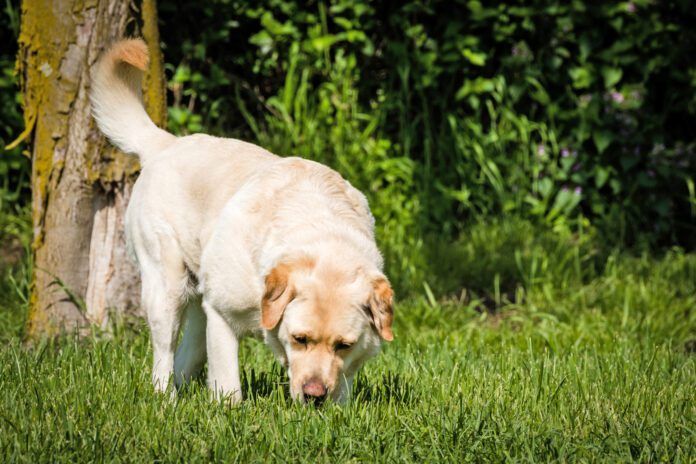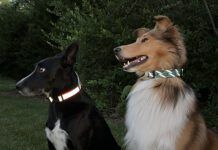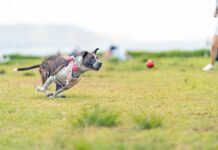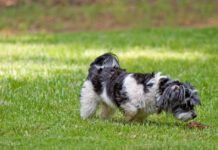Dog urine killing grass happens because of the high nitrogen content in dog urine. A little nitrogen is great for plants, but a lot . . . not so much. Overdosing on nitrogen, even from dog pee, can cause plants to die instead of thrive. It can also affect the soil.
Prevent Dog Urine Killing Grass
Ways to protect your law from dog pee include:
- Promote good hydration. Make sure that your dog always has fresh water available, and consider adding some water to her food. Drinking more water leads to more dilute urine, which is less likely to harm your lawn. Note: You can’t force your dog to drink! Just make that water fresh and appealing to dilute the dog urine.
- Enforce rotating pee spots. If you have multiple yards, switch up which one your dog goes in for elimination outings or use portable fences to give certain grass areas a rest from the dog urine. This helps to spread out the urine rather than all of it being concentrated in one spot. If you walk your dog on leash, mix up the route you take for walks.
- Create a designated pee spot. Alternatively, you can sacrifice one part of your lawn and make it the designated urination zone. You can either accept that this area will have sad-looking grass or cover it with gravel or mulch.
- Consider adding tougher grasses. Seed your lawn with more resilient plants, such as ryegrass, fescue, sedges, or even clover.
- Rinse away the urine. Spray off areas where your dog pees to dilute the urine and spread it over a larger area.
- Allow your lawn to grow taller between mowing. This allows the grass to be more resistant to pee stains.
- Check your fertilizer. If you treat your lawn with fertilizer, use a low-nitrogen fertilizer so that it doesn’t double up on the nitrogen already deposited by your dog.





